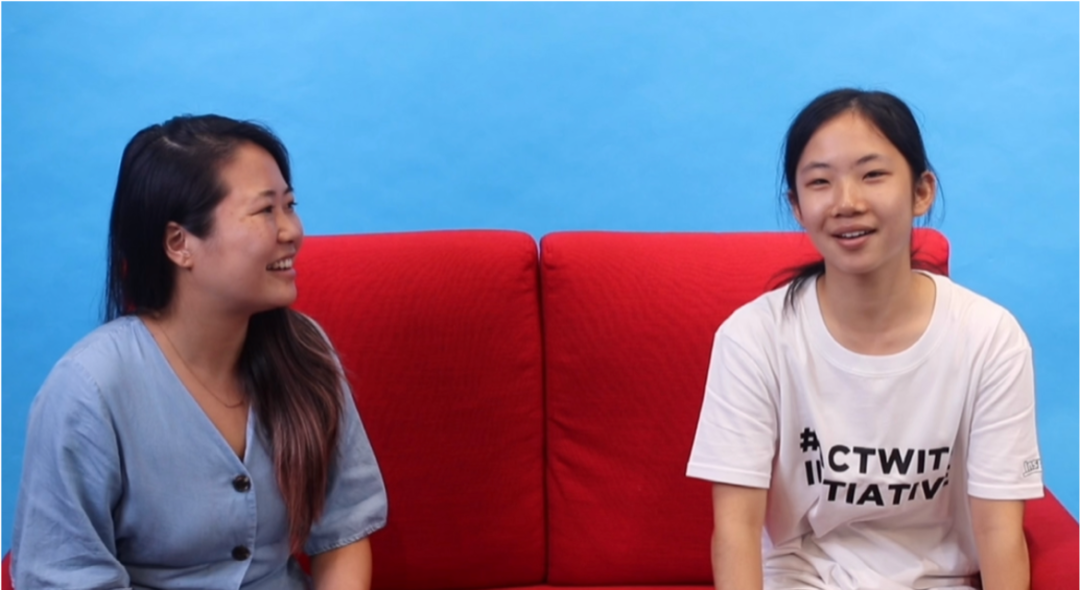STUDENT SUCCESS STORY
How Tina Won the Tokyo Novice Debating Championships

Tina's Story
COUNTRY
China
RESULTS
Won Her First Novice Debate Tournament
WHERE IS SHE NOW?
Shanghai
"I want to thank my mom for her support. Every time I have a debate, I go home and review my performance with her."
- Tina
As the novice champion of the ICUT Tokyo tournament (with Erica and Carl), Tina, who has been studying debate for two or three years, did not stop at her good results. She took the initiative to send a 10-page essay to her coach analyzing a previous World Championship debate, and at the same time read an extremely complex philosophical article related to the debate topic. In the following months, she kept up her analysis of interesting debates and having heated discussions with her coach through emails.
We invited Tina to chat face to face about why she started this hobby, kept learning, and how she was able to develop and grow through practice.
Why did you start learning debate (and stick to it)?
At that time, my classmates who were the same age as me were more or less exposed to debates. I am not an eloquent person myself, so I really want to use this to try to improve my logic and thinking skills, and look forward to breaking through myself. The reason I keep learning is that I find debating really useful!
Not only does it give me a greater ability to argue with my parents at home (laughs), but more importantly, I have actually felt the change in the way I think about problems, as well as the expansion of my writing ability and other abilities.
Is there any topic you particularly like to debate?
The topics I usually touch in the classroom are all-encompassing, and I prefer some topics related to principle theory. I am very interested in philosophy. Theoretical issues have more room to develop in terms of knowledge mining.
I also pay attention to social issues, such as gender equality. But I don't think I'm very good at analyzing these social phenomena, so I will check and make up for the lack of knowledge.
What are the methods you use to train and improve?
After each debate course, I would jump out of my position and review both the pros and cons of the debate topic. I'd conduct relevant research and data collection on debate topics from different angles. These steps are really useful for future practice.
Earlier you mentioned that debate improved your writing. Can you expand on that?
I practice both creative writing and persuasive writing. Through continuous practice, I have gradually developed some better writing habits. For example, when writing a speech or essay, first extract your own core point of view and give a brief summary, and then develop the arguments around this point of view, and make it more meaningful by collecting various empirical information and knowledge points persuasive. Content and structure complement each other, so that an article will be more solid and well-founded.
In what other areas of your life have you used the skills you learned in debate?
I was on the basketball team at school, and my skills are not bad, but my performance on the court is easily affected by nervousness. But debate taught me not to focus too much on failure. During our practical debate, the referees and coaches will give everyone feedback, a large part of which is positive feedback. I think we need to remember our strengths and the reasons for our good performance. Don’t feel like you messed up, and keep a positive attitude. Believe in your own ability, and then strengthen your practice, this is the best way to improve your level.
What was the biggest challenge in your debate training?
In fact, it is about state of mind. Even after two or three years of debating, I can't guarantee that I will perform well every time. When encountering poor performance, I still question whether I have the ability to be a good debater. So improving self-confidence is exactly what I am constantly strengthening.
Besides reminding yourself of what you've done well, what's your best way to stay confident?
I want to thank my mom for her support. Every time I have a debate, I will go home and review my performance with her. Sometimes I complain about myself because of poor performance. She always comforts me first, reminds me of what I have done well, and then encourages me to keep practicing and make progress from accumulation.
What's one piece of advice you would want to give to novice debaters?
Maybe corny, but I would say don't always compare yourself to others! Maybe you think the other party is better than you and performs better than you in the debate, but that may be because he has put a lot of effort behind it, and it does not mean that you cannot be a good debater. Just like what my coach said that impressed me: You can become whoever you want to be through debate.
Request Your Free Placement Test Today
Our Admissions Team will contact you within a day.